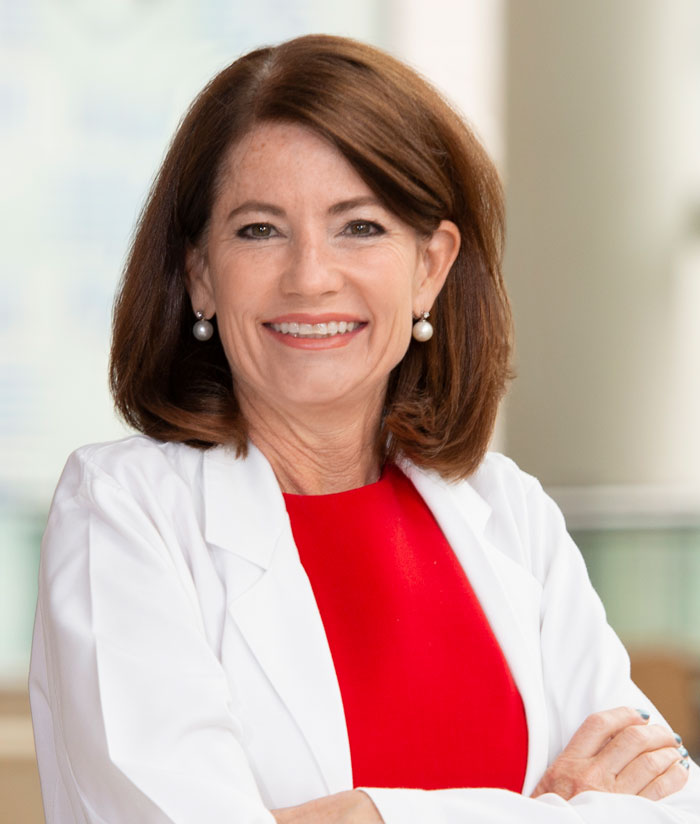
Stephanie Coulter, MD, FACC, FASE
Medical Director, Women's Center for Heart & Vascular Health; Assistant Medical Director, The Texas Heart Institute
Dr. Stephanie Coulter is a long-time advocate of preventative medicine and women’s health and leads innovative research in developing diagnostic tools, treatments, and prevention strategies to improve cardiovascular outcomes. She serves as the founding Medical Director of the Women’s Center for Heart & Vascular Health, Assistant Medical Director of The Texas Heart Institute (THI), and Program Director of the THI Cardiovascular Disease Fellowship at Baylor St. Luke’s Medical Center. Dr. Coulter holds numerous leadership positions at Baylor St. Luke’s Medical Center (BSLMC), including Chief of Staff, and directs the Non-Invasive Cardiology department at Baylor St. Luke’s Medical Center (BSLMC). She has an academic appointment at Baylor College of Medicine in the Department of Medicine section of Cardiology and is an active member of several professional societies, including the American Heart Association and the American Society of Echocardiography.
Dr. Stephanie Coulter graduated from Texas A&M and earned her medical degree from the University of Texas Health Science Center Medical School in Houston. She completed her internship and residency at Harvard Medical School Beth Israel Deaconess Medical Center (BIDMC) in Boston and a fellowship in general cardiology at Harvard Medical School Massachusetts General Hospital. She then pursued an advanced echocardiography fellowship at Massachusetts General and completed a clinical epidemiology and clinical trials fellowship at Harvard Brigham and Women’s. She is a member of many professional societies, including the AMA, the American College of Physicians, the American College of Cardiology, and the American Heart Association.
Since the launch of the Women’s Center in 2010, Dr. Coulter has been interested in investigating the roles biology, psychology, and lifestyle play in putting a woman at risk for heart disease. To better understand racial, ethnic, and cultural disparities in the development of cardiovascular disease within Harris County, a database registry was established in correlation with her Houston HeartReach community outreach screening program, first developed and piloted in 2011. The Women’s Center has grown substantially and announced a new research and training collaboration in January 2017 to conduct highly focused research on diseases that disproportionately impact women’s hearts, including diastolic heart failure and FMD, and simultaneously train the next generation of professionals and researchers. This unparalleled research and training program will unite top physician-researchers across the Texas Medical Center, including colleagues at the UT School of Public Health, Baylor College of Medicine, and The University of Texas Health Science Center at Houston Medical School.
Most importantly, Dr. Coulter believes our community is the environment that defines our lives and carries this belief into her daily work at THI. She educates women and primary care physicians about risk factors and provides interventions to prevent disease or decrease risks. Her newsletter, “Straight Talk from Stephanie,” addresses current topics related to women and heart disease and aims to separate fact from fiction. Dr. Coulter is a featured speaker at many women’s and community groups and has been featured in various news media. She is married with two lovely daughters and a very active community member.


